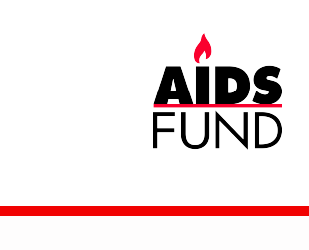
HIV/AIDS Facts

AIDS is not over.
Since the first AIDS case was diagnosed in 1981, over 600,000 Americans have died of AIDS, more than all the U.S. combat deaths since the beginning of World War I.
And while recent advances in medicine and new treatments have made it possible for many people living with HIV/AIDS to live longer lives, public health officials have confirmed that a general perception that HIV is no longer a serious threat has led to increased infection rates in the U.S. In fact, according to the 2006 UN AIDS Report, the number of people infected with HIV in the U.S. has reached its highest level ever, estimated at 1.2 million.
There Is No Cure
HIV (Human Immunodeficiency Virus) is a virus that attacks and breaks down a person’s immune system. When our immune systems become compromised, we lose our ability to fight off illness and infection.
AIDS (Acquired Immune Deficiency Syndrome) is the name of the life-threatening disease that people with the HIV virus have if they develop one of the infections connected with HIV, or if blood tests show that their immune system has been badly damaged by the virus.
HIV can be transmitted from person to person when certain body fluids (blood, semen, vaginal fluids, or breast milk) from an infected person pass into another’s body. There are three main ways that this can be done:
- by having unprotected sex
- by sharing needles
- from mother to child at birth or through breastfeeding
HIV is absolutely not transmitted through casual contact. It is safe to hold hands, kiss, and work with someone who has HIV or AIDS. Since HIV cannot live outside the human body, you cannot be infected from toilet seats, phones, or water fountains. The virus also cannot be transmitted through the air by sneezing or coughing.
Although there have been many recent advances in HIV/AIDS treatment and medication since the 1980s, there is still no cure. If you need more information about how the virus is transmitted, existing treatments, free testing, or other services available in the Delaware Valley for people affected by or living with HIV, please call 1-800-985-AIDS.
Some Statistics

Philadelphia Region
- There are an estimated 30,000 people living with HIV in the Greater Philadelphia Region (Philadelphia Department of Health)
- Philadelphians are being infected at a rate FIVE TIMES the national average, and are being infected at a rate more than 50% higher than residents of New York City.
UNITED STATES
- According to the most recent data from the Center for Disease Control (CDC) and the UN Report on AIDS, there are an estimated 1.2 million people living with HIV/AIDS in the U.S. – the highest level ever.
- Estimates suggest that at least one third of all new HIV infections in the U.S. are among those younger than 29 and that the majority of young people are infected sexually.
- Approximately 20% of people infected with HIV do not know it.
- About half of the 1.2 million people living with HIV in the U.S. are not receiving medical care.
WORLDWIDE
- By the end of 2005, there were an estimated 38.6 million people living with HIV. Of these, 10 million are young people between the ages of 15 and 24.
- In 2005, AIDS killed about 2.8 million people. 25 million have died since the first case was recognized in 1981.
- According to the UN Report on AIDS, an estimated 4.1 million people were newly infected last year.
- The UN expects global funds for anti-AIDS efforts to reach $8.9 billion this year, “far short” of the $14.9 billion needed to meet the organization’s target.
For more information and further statistics on specific population groups, visit The Center for Disease Control and Prevention at www.cdc.gov/hiv and UN AIDS, The Joint United Nations Program on HIV/AIDS at www.unaids.org.
To find a testing center near you, call 215-985-AIDS(2437) .


